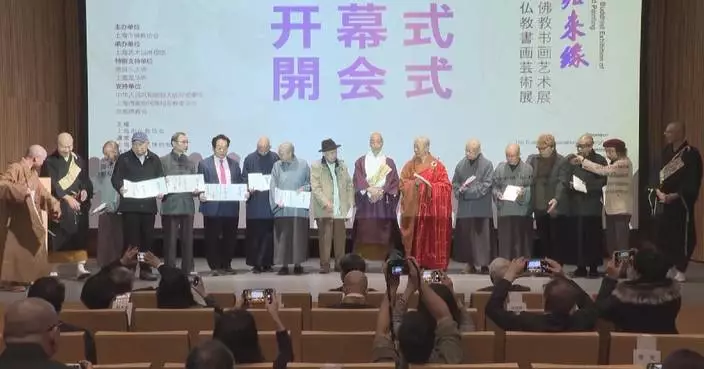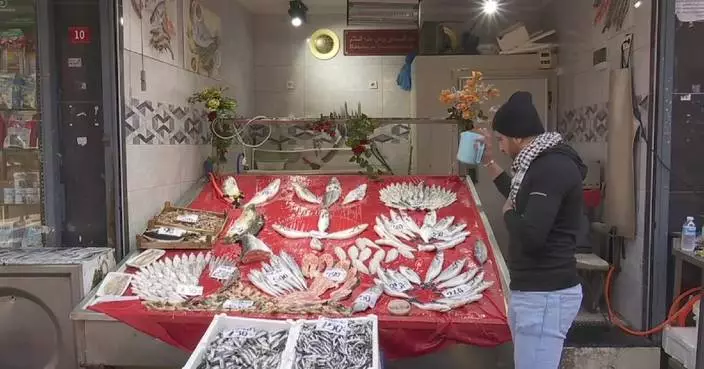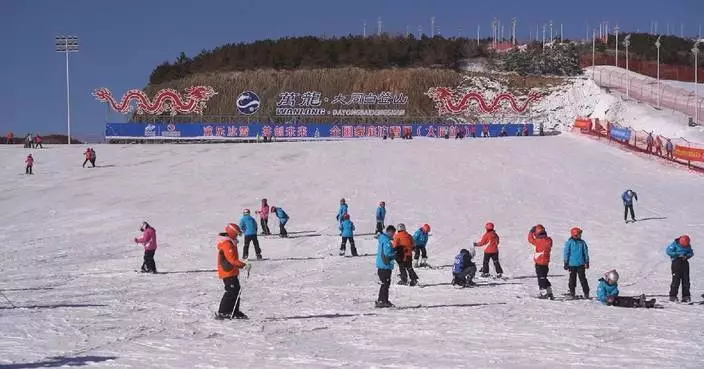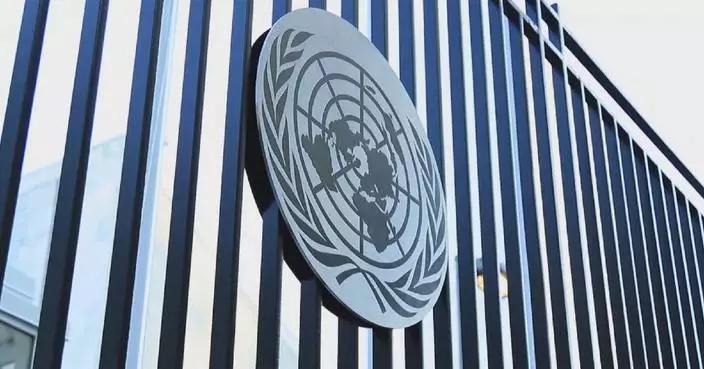The European Union's decision to impose anti-subsidy tariffs on Chinese-made electric vehicles (EVs) is essentially an act of trade protectionism, according to the China Association of Automobile Manufacturers (CAAM) on Wednesday.
The European Commission, the executive arm of the 27-nation EU, announced on Tuesday that it had concluded its anti-subsidy investigation and decided to impose a definitive countervailing duty on imports of new battery EVs imported from China for a period of five years.
The sampled Chinese companies will be subject to different countervailing duties, specifically, 17.0 percent on BYD, 18.8 percent on Geely, and 35.3 percent on SAIC.
Xu Haidong, deputy chief engineer of the CAAM, said that the EU has completely disregarded how China's vast EV market and competitive market economy, rather than so-called subsidies, have affected pricing of EVs.
"The CAAM firmly opposes this decision, which represents typical trade protectionism disguised as rule-based act. It significantly hurts the feelings of Chinese automobile companies and erodes the confidence of Chinese manufacturers investing in Europe," said Xu.
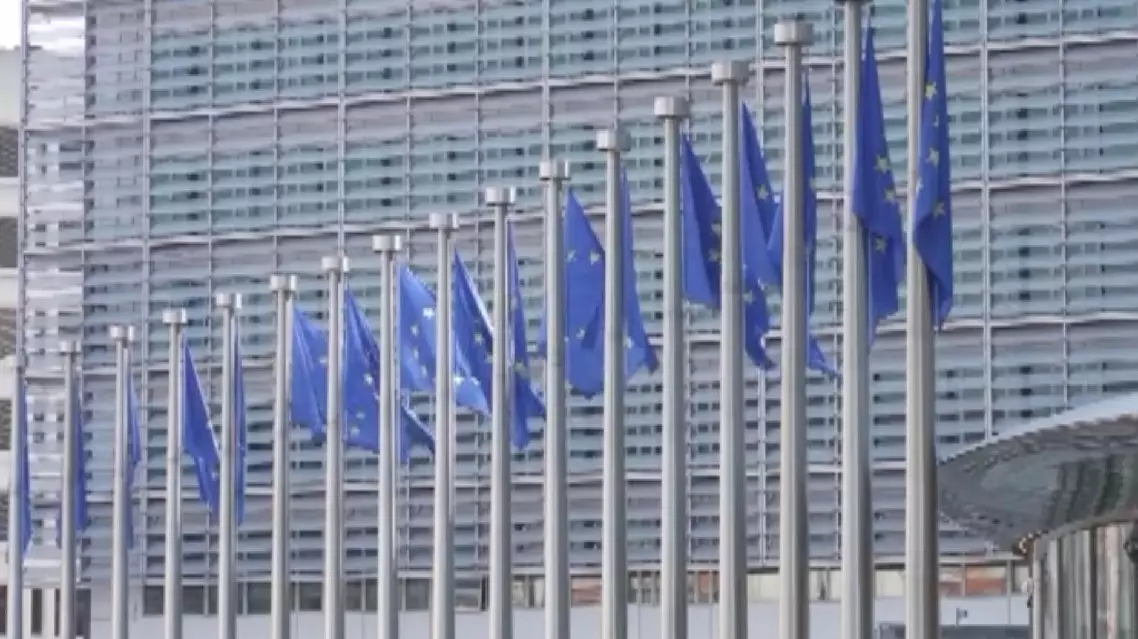
China auto association condemns EU tariffs on Chinese EVs as trade protectionism
Chinese Vice President Han Zheng met with Deputy Prime Minister and Foreign Minister of Vietnam Bui Thanh Son in Beijing on Tuesday, with both sides pledging to promote the China-Vietnam community with a shared future.
Noting that China and Vietnam are comrades in the socialist cause and good partners on the path of reform, Han said General Secretary of the Central Committee of the Communist Party of China and President Xi Jinping and General Secretary of the Communist Party of Vietnam Central Committee and President To Lam have made strategic plans for advancing the China-Vietnam community with a shared future, providing clear direction for the development of bilateral relations.
Noting that next year marks the 75th anniversary of the establishment of diplomatic relations between the two countries and the China-Vietnam Year of People-to-People Exchanges, Han said the two sides should follow the important consensus reached by the top leaders of the two parties and two countries, maintain strategic communication, expand practical cooperation, consolidate the foundation of public opinion, strengthen multilateral coordination and promote the building of a China-Vietnam community with a shared future, bringing more benefits to the two peoples.
Bui Thanh Son said that developing long-term friendly relations with China is the consistent proposition, objective requirement, strategic choice and top priority of Vietnam's diplomacy.
Vietnam firmly adheres to the one-China policy and is willing to strengthen high-level exchanges, consolidate political mutual trust, deepen pragmatic cooperation with China, and jointly promote the building of a Vietnam-China community with a shared future with strategic significance, he added.
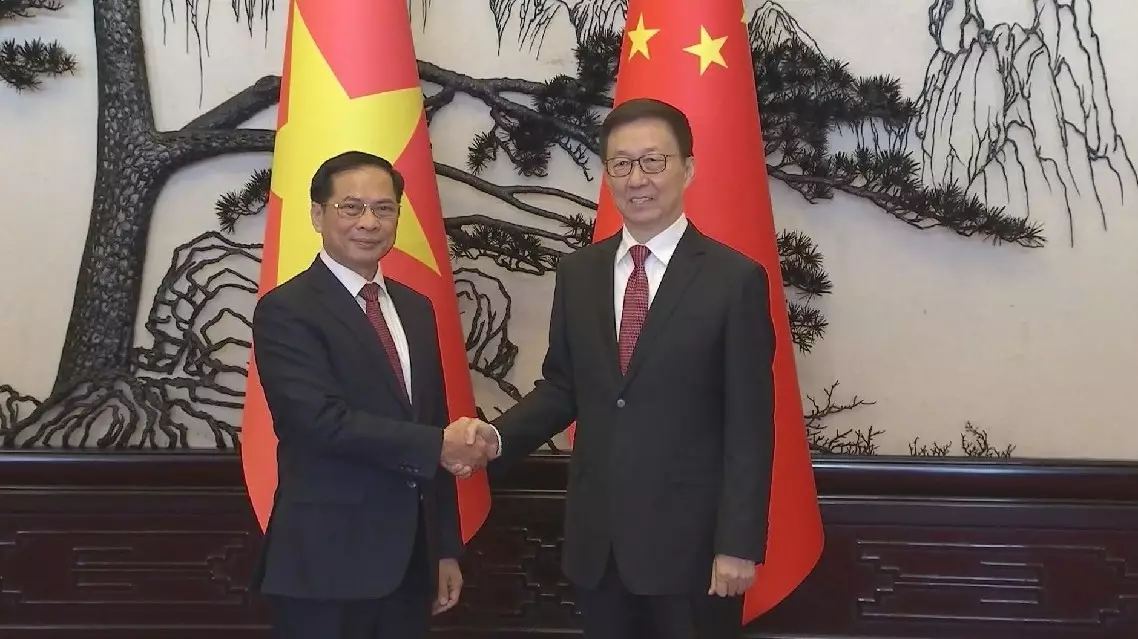
Chinese, Vietnamese officials pledge to promote China-Vietnam community with shared future




